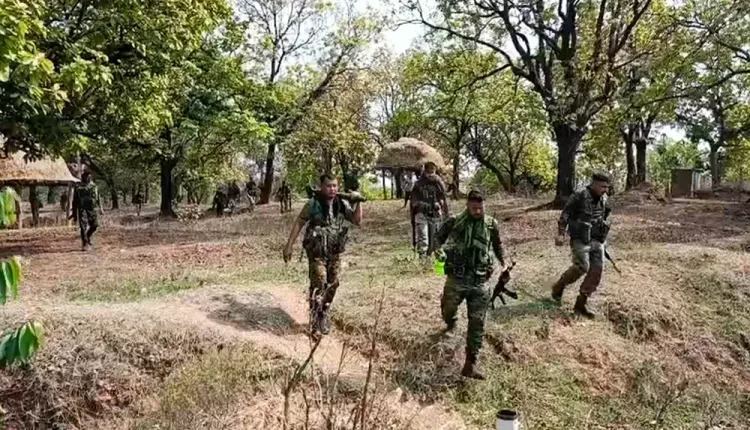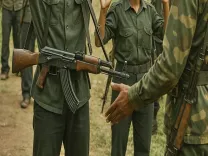Could the Surrender of Major Maoist Sonu 'Dada' and 60 Cadres Change the Landscape of Insurgency in Maharashtra?

Synopsis
Key Takeaways
- Groundbreaking Surrender: Sonu 'Dada' and 60 others surrender.
- Significant Blow: Major impact on Maoist leadership.
- Intelligence Gathering: Security forces interrogating surrendered cadres.
- Community Support: Government policies encouraging surrenders.
- Future Uncertainty: Speculation about larger exodus of insurgents.
Gadchiroli, Oct 14 (NationPress) In a potentially groundbreaking turn of events for India's ongoing struggle against left-wing extremism, reports suggest that high-ranking Maoist leader Mallojula Venugopal Rao, known as Sonu 'Dada' or Bhupati, has turned himself in to security forces along with 60 other insurgents in the Gadchiroli district of Maharashtra.
While police have not yet provided official confirmation, this incident, which took place on Tuesday, is being seen as the largest simultaneous surrender in the history of the Maoist movement, delivering a severe blow to the banned Communist Party of India (Maoist).
According to police sources, the group surrendered their weapons in the dense forests of Gadchiroli, a region long plagued by Maoist activity.
However, the Maharashtra Police and central agencies have yet to verify this information.
Authorities are asking the public to wait for confirmed statements, highlighting the sensitivity of operations in this area.
Sonu 'Dada', a prominent figure within the Maoist hierarchy, had previously expressed a desire to surrender to the government along with his weaponry—an unusual public statement that reportedly caused internal strife within the organization.
Sources indicate that this declaration sparked divisions, leading to defections and diminishing the group's unity.
The surrendered individuals, which include women and lower-ranking members, are now being interrogated by security forces to gather crucial intelligence regarding Maoist networks, hideouts, and future strategies.
This event coincides with intensified anti-Naxal operations in Maharashtra's eastern districts, where government rehabilitation initiatives have encouraged such surrenders.
The Naxal Surrender and Rehabilitation Policy provides amnesty, financial assistance, and skills training to help former insurgents reintegrate into society. If confirmed, Sonu 'Dada's' defection could destabilize key leadership structures, as he is believed to have orchestrated numerous high-profile attacks.
Experts believe this signifies the success of coordinated intelligence and community outreach efforts. However, as the official confirmation is awaited, speculation is rife—could this signal the start of a larger exodus?
The Gadchiroli administration has increased security measures, while civil society organizations advocate for the humane treatment of those who have surrendered. As investigations continue, this unverified report highlights the complex dynamics of India's battle against extremism.









